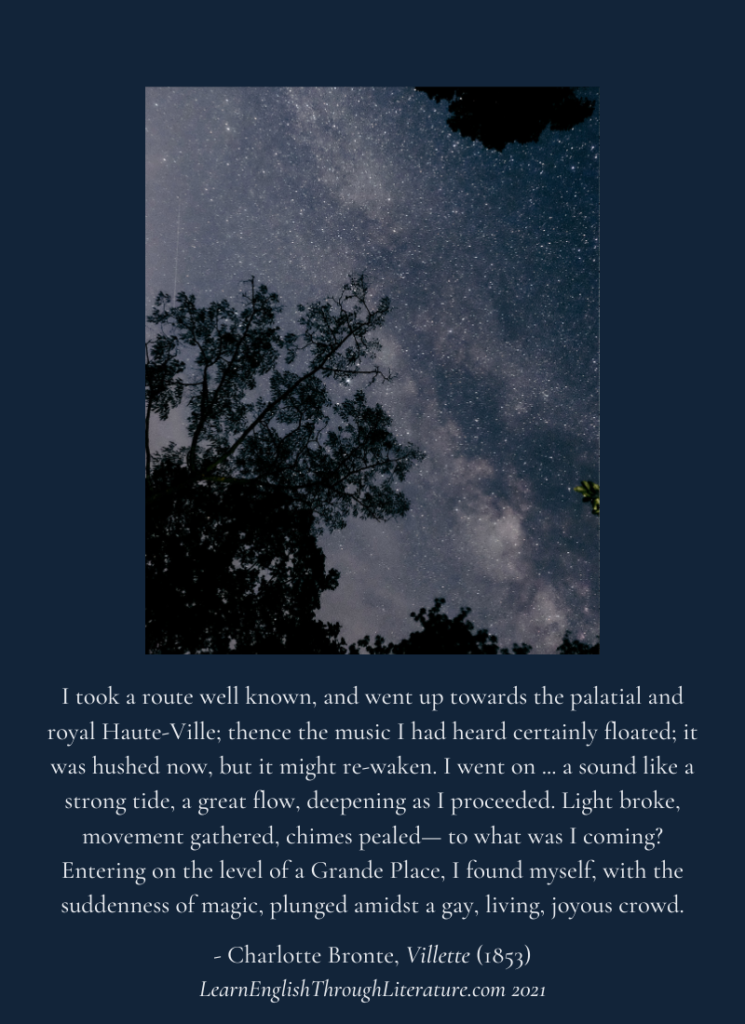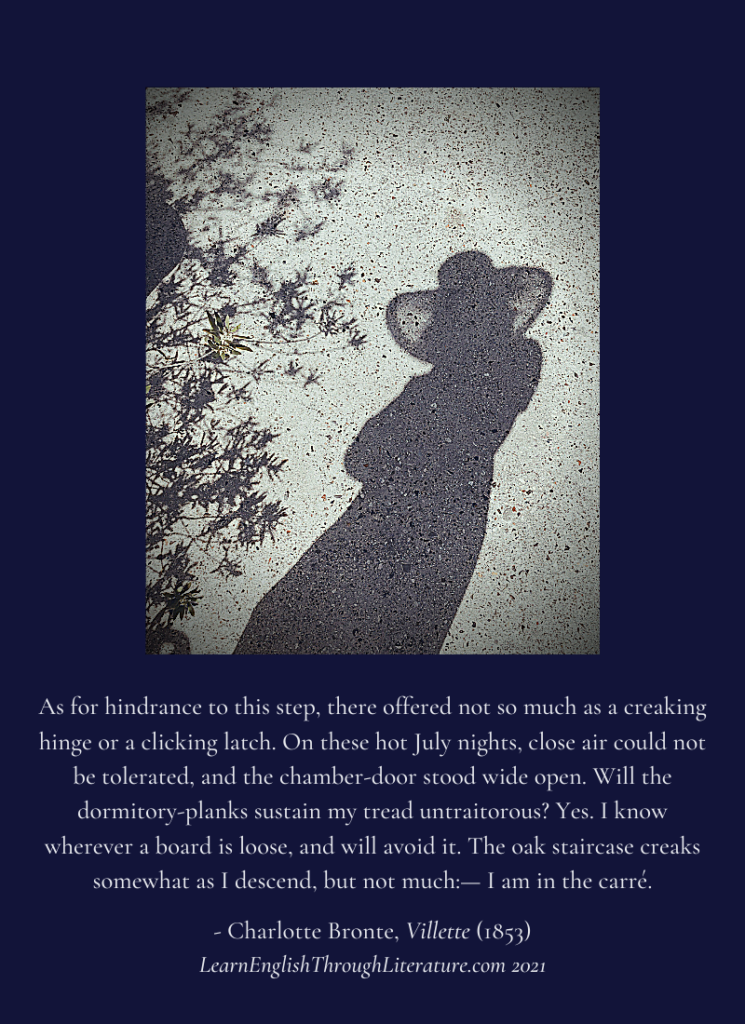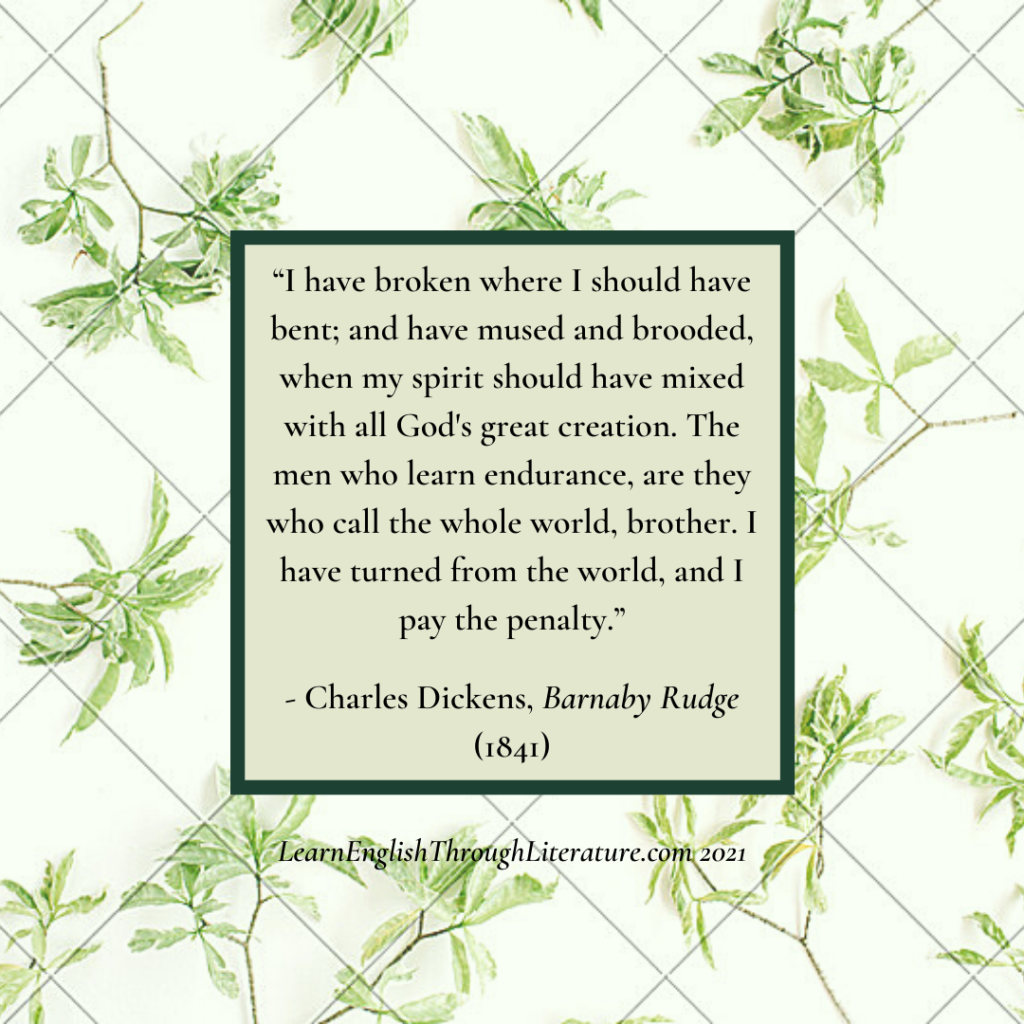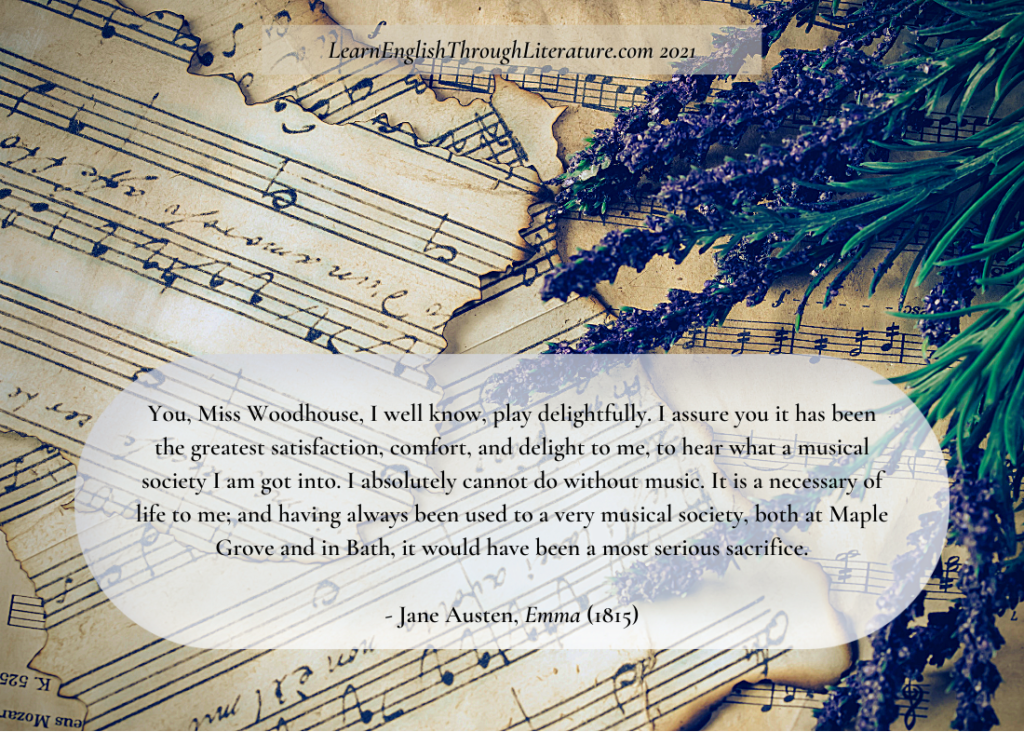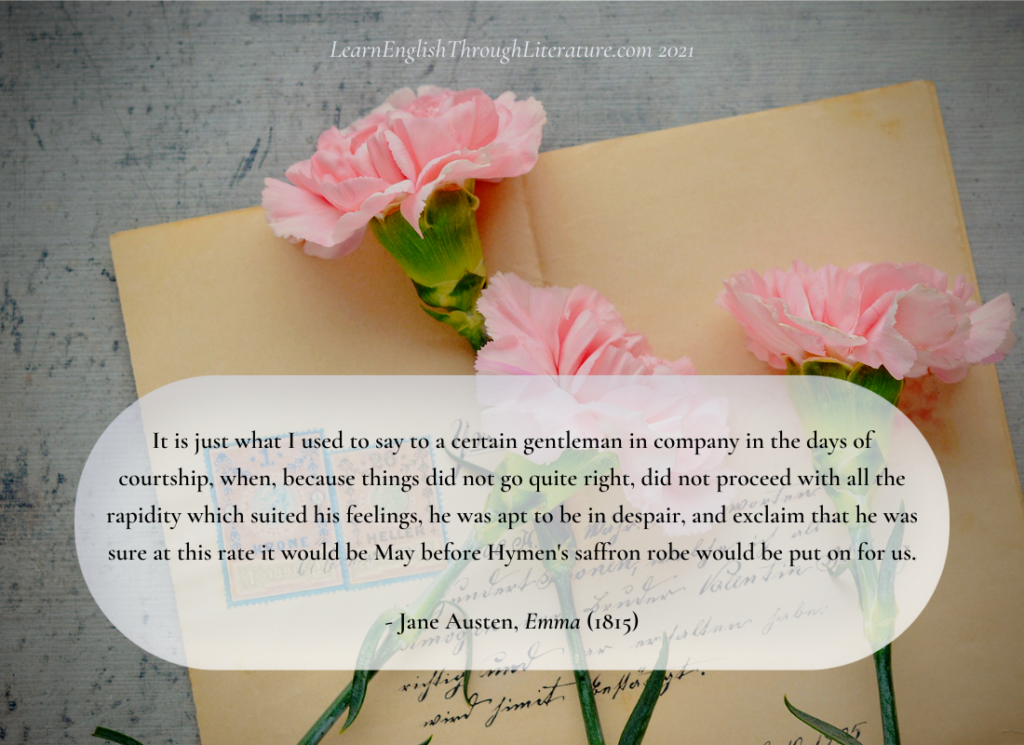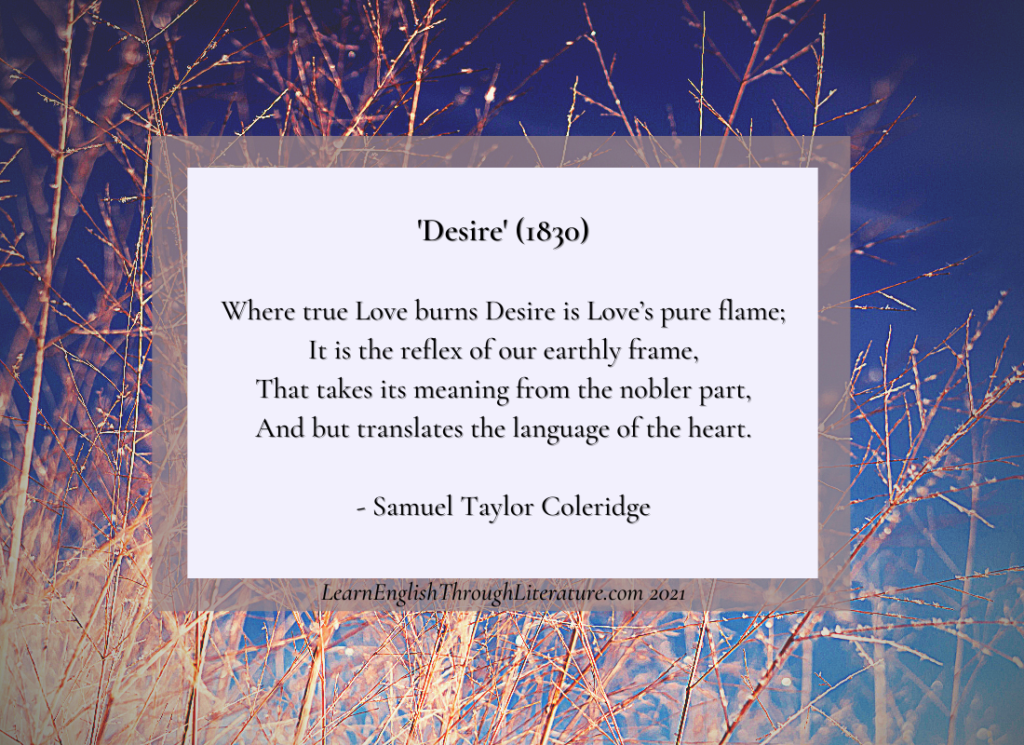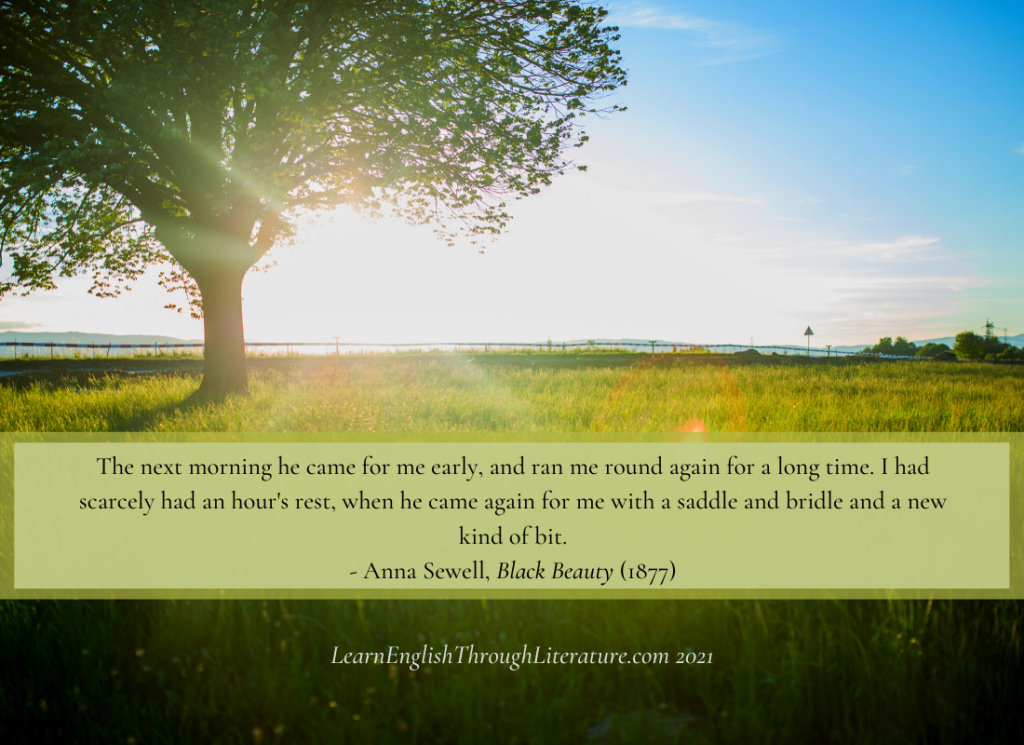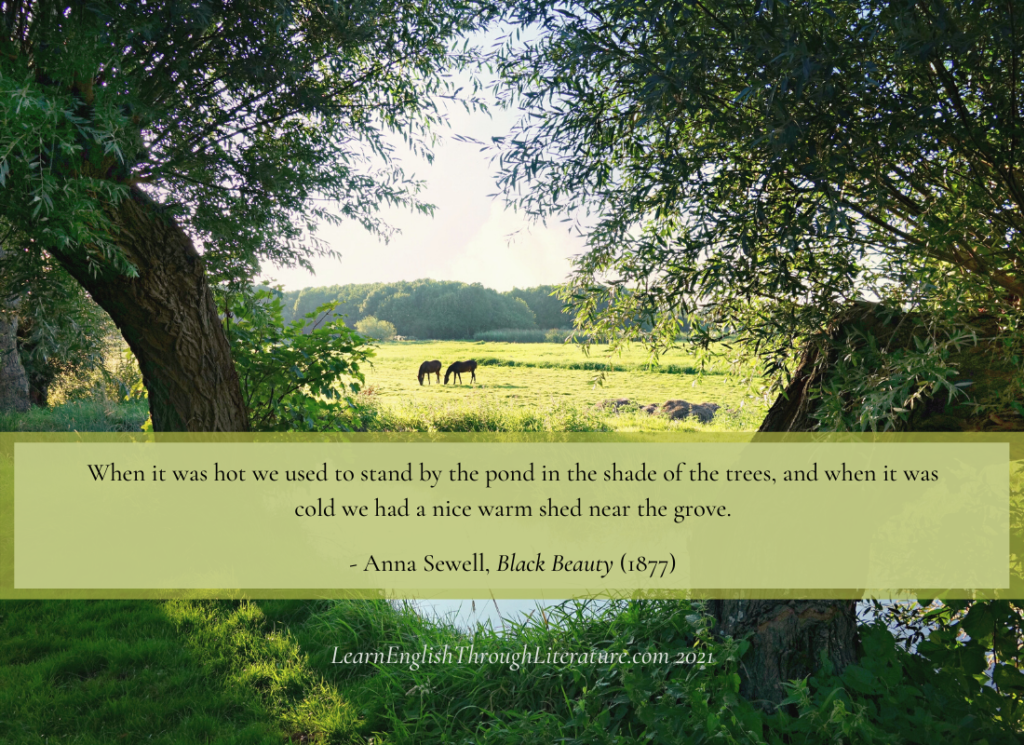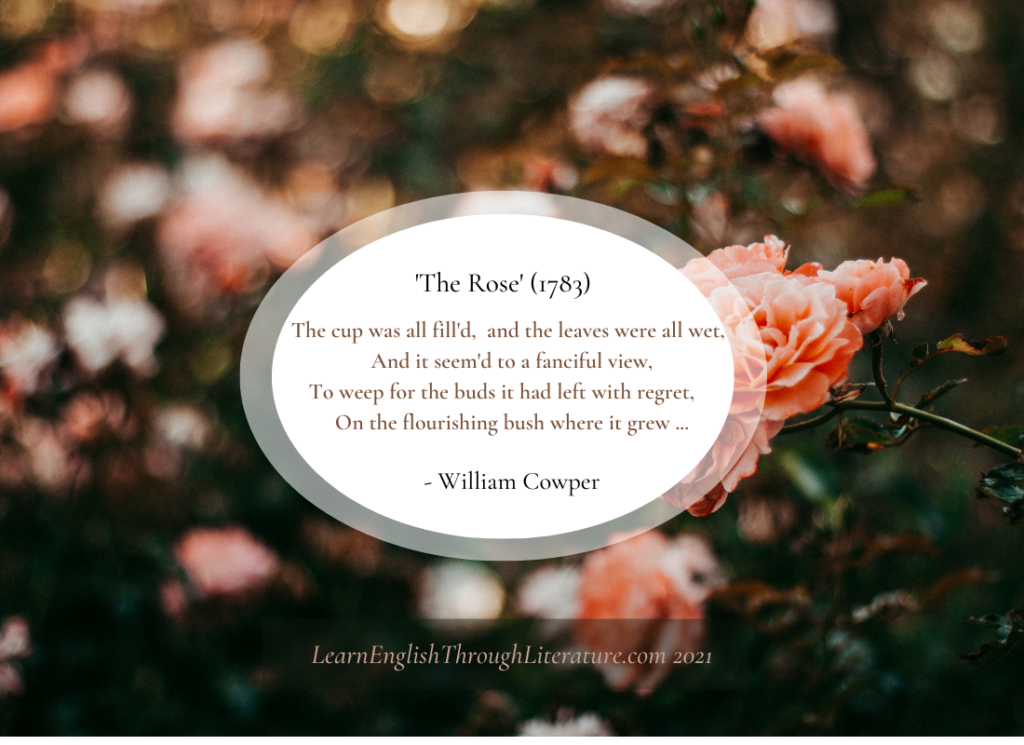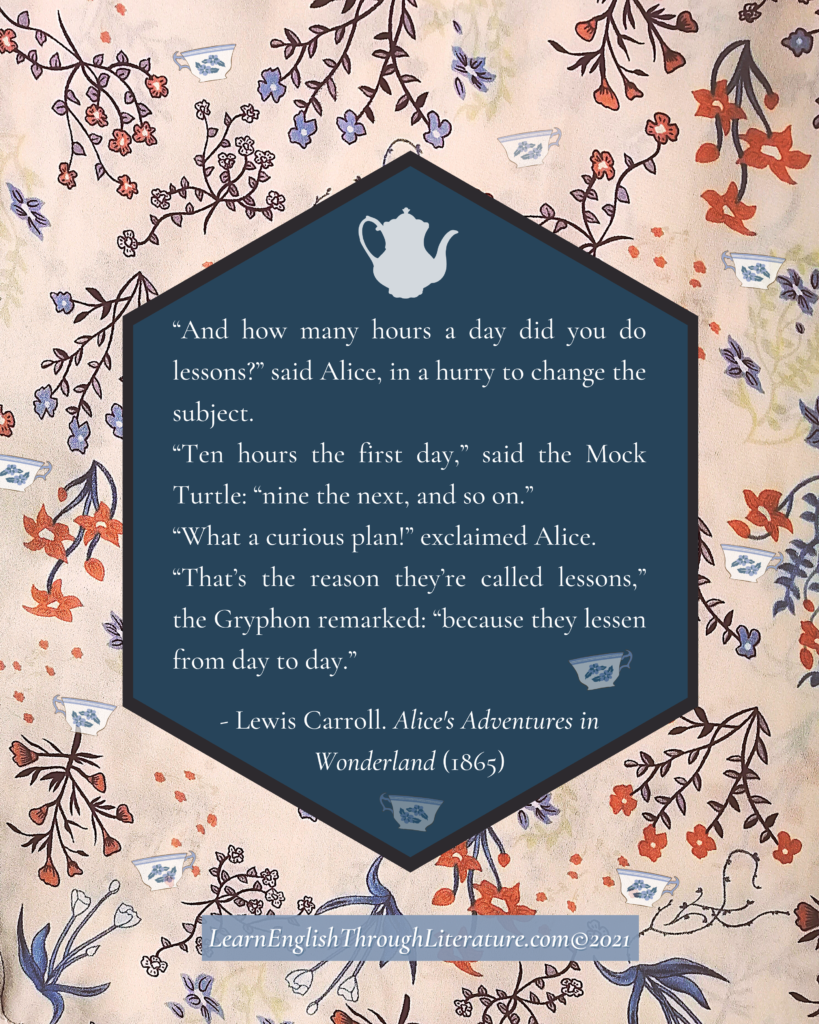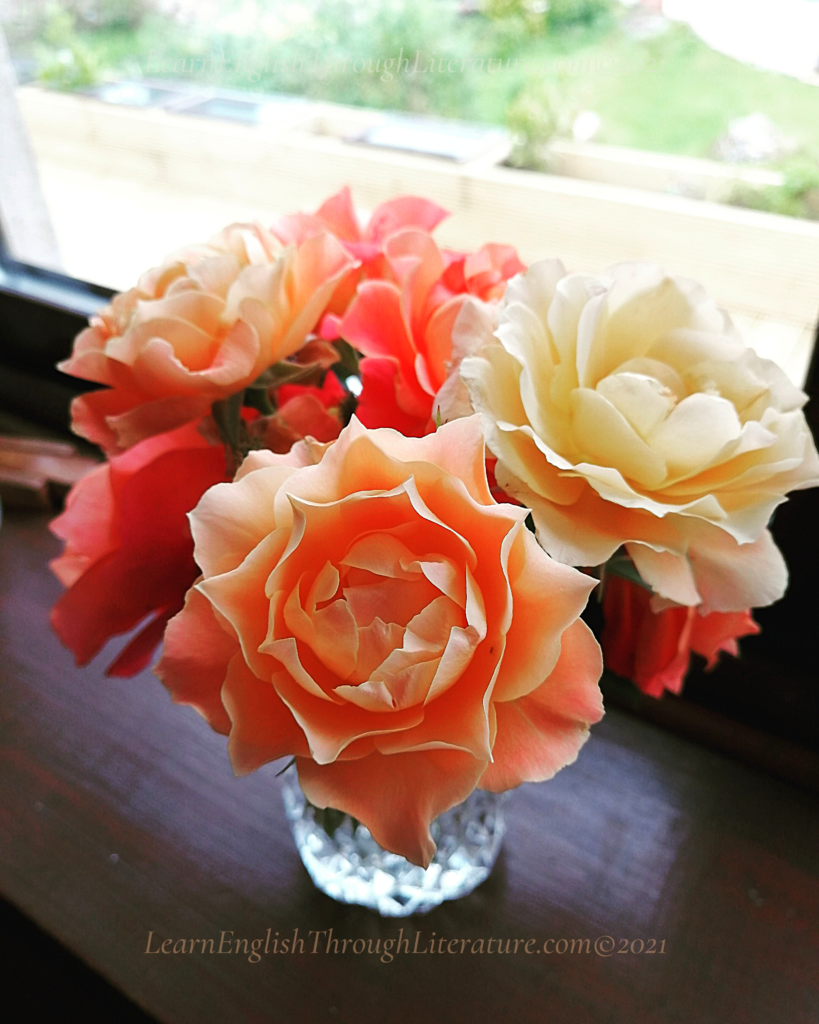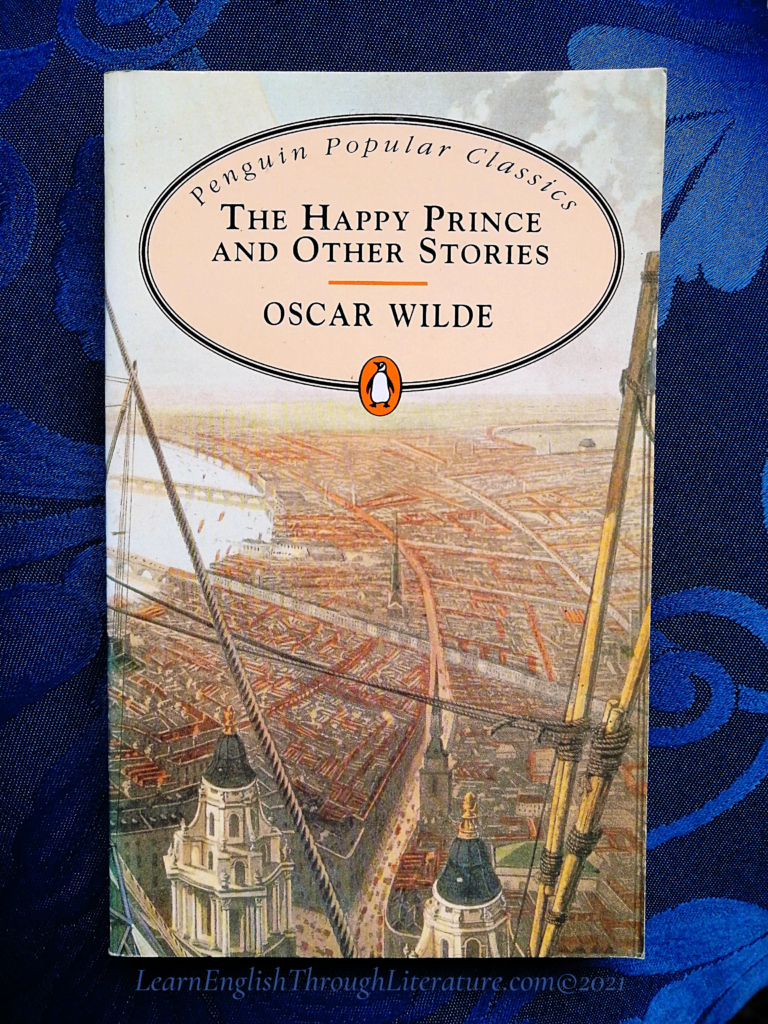Mini-Lesson Monday, Lesson #207 (Part 2): Adjectives that end with -ed and -ing in English (through Bronte’s ‘Villette’)
In this second part of our Lesson on adjectives, we are going to focus on adjectives ending with -ing in English (for adjectives ending with -ed, check Part 1 of our Lesson). … 📝 #4 ADJECTIVES ENDING WITH -ing 📘 ‘It seems as if I had been pioneered invisibly, as if some dissolving force had […]

